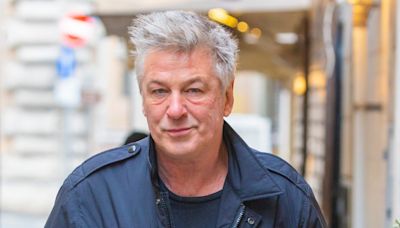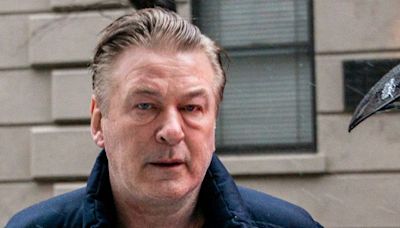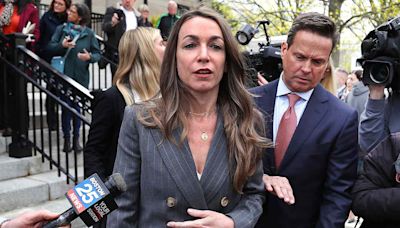Search results
Mar 8, 2021 · This episode covers Betty's second trial; the first trial resulted in a hung jury. From the Court TV series "Trial Story" - this is "A Woman Scorned: The Murder Trial of Betty Broderick."There...
- 73 min
- 809.6K
- As Close to Crime
1 day ago · The death of John O’Keefe. The heart of the trial stems from what happened on one wintry evening in Canton over two years ago. On the night of January 28, 2022, Read and O’Keefe went out ...
- Overview
- Summary
- Legacy
The Trial, novel by visionary German-language writer Franz Kafka, originally published posthumously in 1925. One of Kafka’s major works, and perhaps his most pessimistic, this surreal story of a young man who finds himself caught up in the mindless bureaucracy of the law has become synonymous with the anxieties and sense of alienation of the modern...
The narrative emerges from the book’s opening sentence: “Somebody must have slandered Joseph K., for one morning, without having done anything wrong, he was arrested.” It is K.’s 30th birthday, and a pair of guards have arrived at his boardinghouse to inform him that he is under arrest. He is shortly summoned before the inspector, who is in the bedroom of another tenant. The inspector does not know what the charges are but tells K. that he is free to continue living his life as usual. K. goes to the bank where he works and is later told that a series of hearings will be taking place on Sundays.
Britannica Quiz
The Literary World (Famous Novels)
K. is not informed of the time that he is expected to appear, but he goes on Sunday morning to the address he was given, which proves to be that of a large tenement building. Eventually a washerwoman directs him to a crowded meeting hall, where the examining magistrate scolds K. for being late. K. energetically protests his treatment and denounces the corruption of the system. As he is leaving, the magistrate tells him that he has damaged his case by declining to participate in the hearing. No further summonses arrive, so K. returns to the building the following Sunday morning only to be told by the washerwoman that court is not in session. Her husband is the court usher, and he offers to show K. the law court offices. While there K. begins to feel extremely fatigued, but after two officials help him outside, he immediately recovers.
A few days later, as he is leaving work, K. hears a sound coming from a storeroom, and inside it he finds the guards who arrested him being flogged because of his complaints about them to the magistrate. An uncle of K.’s later takes him to the defense lawyer Dr. Huld. Although Huld is in bed because of a heart condition, he is very interested in taking on K. as a client. The chief clerk of the court emerges from a dark corner of the room, and he and Huld discuss the case. Huld’s caretaker, Leni, lures K. from the room and seduces him. She also tells him that he is being too stubborn and that he must confess his guilt. K.’s uncle is furious over his inattention to his case.
Weeks pass, during which K. finds it increasingly difficult to focus on work and also becomes increasingly dissatisfied with his lawyer’s largely invisible work on his behalf. One day a bank client suggests that he seek help from the court painter, Titorelli. In light of K.’s innocence, Titorelli says that he can help K., though he reveals that, in his experience, no one has ever been acquitted. However, he believes that K. can obtain an ostensible acquittal, which is provisional and hence carries the risk that charges might be reinstated, or an indefinite postponement, which requires regular filings and appearances. Either may prevent the case from reaching the sentencing phase.
The novel is an evocative account of K.’s helplessness in the face of a completely incomprehensible system. After Kafka’s death from tuberculosis in 1924, the chapters were organized and the book published by his friend and literary executor, Max Brod, despite Kafka’s request that Brod destroy the manuscript. The book was unfinished, and there has ...
The Trial (German: Der Process) is a novel written by Franz Kafka in 1914 and 1915 and published posthumously on 26 April 1925. One of his best-known works, it tells the story of Josef K., a man arrested and prosecuted by a remote, inaccessible authority, with the nature of his crime revealed neither to him nor to the reader.
- Franz Kafka
- 1925
Welcome to Famous Trials, the Web’s largest and most visited collection of original essays, trial transcripts and exhibits, maps, images, and other materials relating to the greatest trials in world history.
A bereaved parents' trial against the General Motors Corporation. Thomas and Elaine Moseley believe GM is at fault for not re-calling one of their pick-up trucks, known to be defective, in the death of their son.
The Trial: plot summary. Josef K., the chief cashier in a bank, is arrested one morning by two mysterious agents. However, they refuse to tell him what crime he is accused of. He is not thrown into prison pending his trial, but allowed to carry on with his day-to-day affairs until summoned by the Committee of Affairs.




